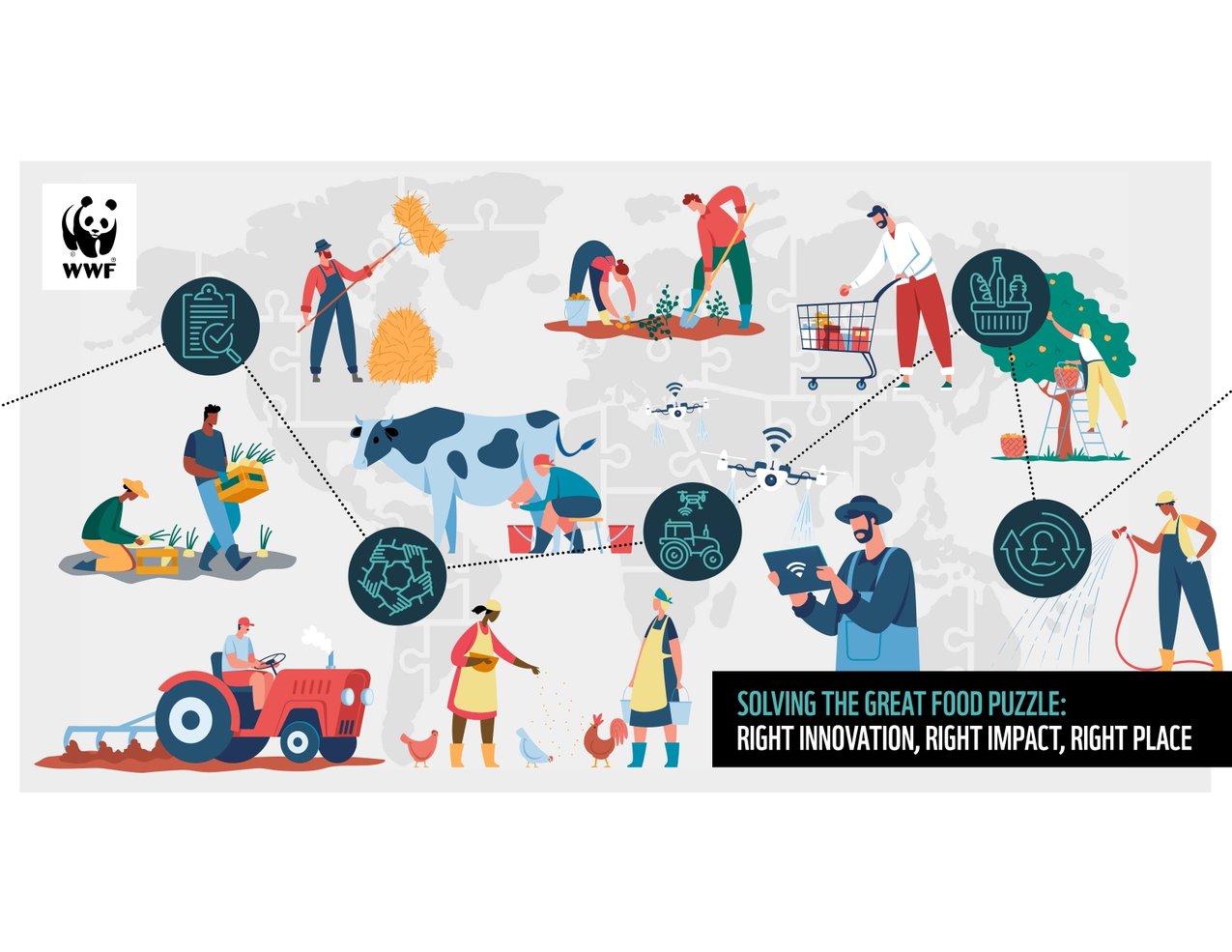Resource Library
Feature Resources
From Roots to Riches: Priority Policy and Investment Decisions for Grasslands and Savannahs
Clarifying and communicating the values of grasslands is essential to catalysing increased conservation, restoration and sustainable management. Grasslands and savannahs face significant and widespread threats from multiple fronts and are an underacknowledged ecosystem in the minds and imaginations of people around the world. The report reflects a growing recognition and commitment to grassland and savannah conservation within WWF and partners, due to their critical roles in food security, biodiversity, ecosystem services and human cultures. It contributes to momentum building towards the International Year of Rangelands and Pastoralists and the next Conference of the Parties of the UN Convention to Combat Desertification (UNCCD) in Mongolia, both in 2026. This report aims to help governments to develop ambitious yet realistic conservation strategies for these critical ecosystems and inform private sector initiatives and finance.
Multistakeholder Engagement to Scale Soil Health Globally: The Coalition of Action 4 Soil Health
Healthy soil is critical for ecosystem restoration, climate change mitigation and adaptation, biodiversity conservation, water cycling, farmer livelihoods, and food and nutrition security. Despite its importance, soil health has often been overlooked, but momentum is growing as evidenced by recent high-level initiatives such as the Nairobi Declaration as part of the Africa Fertiliser and Soil Health Action Plan and the European Union Soil Mission: A Soil Deal for Europe. The UN Decade on Ecosystem Restoration was launched on 5 June 2021 to galvanise local, national and global action to restore degraded ecosystems. In the same year, the UN Food Systems Summit (UNFSS) initiated a call for coalitions of action to champion integrated, systemic approaches to transform food systems. The Coalition of Action 4 Soil Health (CA4SH) was launched to bring soil health into focus with participation across sectors and scales to ultimately raise awareness about this critical ecosystem that we depend on, but which is being degraded at unprecedented rates. Since 2021, CA4SH has grown to include nearly 200 members (as of January 2025) representing the public and private sectors, research institutions, non-governmental organisations, farmer organisations and cooperatives, individuals, youth-led organisations, and indigenous organisations to mention some. The initiative has also had a strong focus on gender equity and social inclusion (GESI) in soil and landscape restoration. The Coalition promotes soil as a unifier across a diverse set of stakeholders, building partnerships to overcome critical economic, technical and institutional barriers to the adoption and scaling of healthy soil practices. Furthermore, CA4SH facilitates evidence-based policy and practice action for the scaling of restoration practices that improve soil health. The Private Sector Guiding Group, launched as part of the UNFSS, developed a call to action to support increased investments in healthy soil, and continues to support the actions of the Coalition. Its four working groups focus on communication, soil health monitoring and implementation, policy, and financial investment. In the first three years since its launch, the Coalition has engaged in multinational dialogues and contributed to the adoption of soil health in the outcomes from the UN Framework Convention of Climate Change (UNFCCC) 27th Conference of the Parties (COP27) through the Koronivia joint work on agriculture (now the Sharm El-Sheikh Declaration), the UNFCCC COP28 UAE Declaration on Food Systems and Agriculture, the UNCCD COP16 Riyadh Action Agenda and also launched the Soil Health Resolution. Leveraging on the enabling policy environment, the Coalition catalyses public and private sector action with outcomes for economic returns and growth, productivity and rural livelihoods, climate and nature. The positioning of the Coalition in the current global environmental transition is pivotal to drive the multifaceted benefits that soil health improvement offers to food systems transformation and global adaptation to and mitigation of climate change.
Food Forward NDCs: Guidance to enhance NDC ambition and implementation for agriculture and food systems transformation
FOOD FORWARD NDCs is a simple, interactive, web-based tool that presents users with tangible, evidence-backed policy options and measures, and available literature for transitioning to nature-positive, healthy, and resilient food systems through NDCs. The available policy options can be tailored to a country’s specific food system priorities and different intervention areas of the food system, such as food environment, food governance, food production, supply chain, and consumption. The guidance does not intend to prescribe solutions, but instead, presents a menu of policy options as a starting point for decision-makers to further develop and implement on-theground measures for food systems transformation based on national and local contexts.
Download the full primer document from WWF
Measuring Water’s Contribution to Regenerative Agriculture
Download the presentation from Leigh Winowiecki, Aida Bargues Tobella, Christina Magaju and Tor-G Vagen in a joint side event at the Swidish International Water Institute’s World Water Week (SIWI WWW) in August 2023.
Solving the Great Food Puzzle: Right Innovation, Right Impact, Right Place
Innovations aren’t delivered by just a few people – everyone working within a food system can innovate. It is important that all stakeholders identify the actions that will deliver most impact in the shortest time – identifying new actions that can be applied, and scaling those that are already delivering success. Everyone must work to rapidly accelerate food systems transformation. Those investing money in food systems transformation (be they governments, banks, private investors, public donors or businesses) have a significant say in what innovations are implemented. Not only does the amount of funding for food systems innovation need to be increase, the direction of funds must become even more focused and context-specific.
There are already many innovations in our food systems and several are demonstrating their ability to deliver big impacts in short timeframes. Innovating doesn’t require developing completely new ways of doing things and decision-makers can learn from the approaches being applied in similar food systems round the world.








